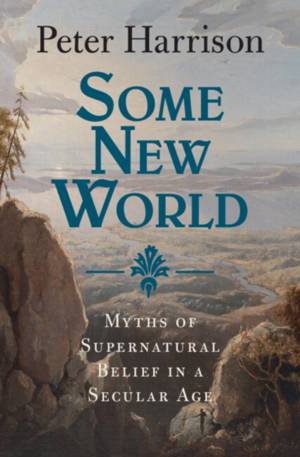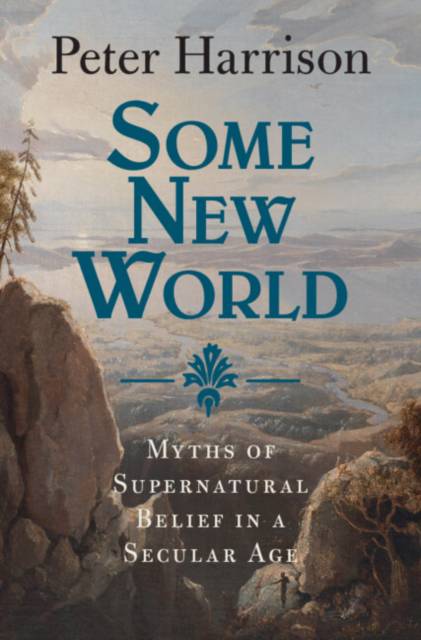
Bedankt voor het vertrouwen het afgelopen jaar! Om jou te bedanken bieden we GRATIS verzending (in België) aan op alles gedurende de hele maand januari.
- Afhalen na 1 uur in een winkel met voorraad
- In januari gratis thuislevering in België
- Ruim aanbod met 7 miljoen producten
Bedankt voor het vertrouwen het afgelopen jaar! Om jou te bedanken bieden we GRATIS verzending (in België) aan op alles gedurende de hele maand januari.
- Afhalen na 1 uur in een winkel met voorraad
- In januari gratis thuislevering in België
- Ruim aanbod met 7 miljoen producten
Zoeken
€ 60,45
+ 120 punten
Omschrijving
In his famous argument against miracles, David Hume gets to the heart of the modern problem of supernatural belief. 'We are apt', says Hume, 'to imagine ourselves transported into some new world; where the whole form of nature is disjointed, and every element performs its operation in a different manner, from what it does at present.' This encapsulates, observes Peter Harrison, the disjuncture between contemporary Western culture and medieval societies. In the Middle Ages, people saw the hand of God at work everywhere. Indeed, many suppose that 'belief in the supernatural' is likewise fundamental nowadays to religious commitment. But dichotomising between 'naturalism' and 'supernaturalism' is actually a relatively recent phenomenon, just as the notion of 'belief' emerged historically late. In this masterful contribution to intellectual history, the author overturns crucial misconceptions - 'myths' - about secular modernity, challenging common misunderstandings of the past even as he reinvigorates religious thinking in the present.
Specificaties
Betrokkenen
- Auteur(s):
- Uitgeverij:
Inhoud
- Aantal bladzijden:
- 488
- Taal:
- Engels
Eigenschappen
- Productcode (EAN):
- 9781009477222
- Verschijningsdatum:
- 18/04/2024
- Uitvoering:
- Hardcover
- Formaat:
- Genaaid
- Afmetingen:
- 157 mm x 231 mm
- Gewicht:
- 884 g

Alleen bij Standaard Boekhandel
+ 120 punten op je klantenkaart van Standaard Boekhandel
Beoordelingen
We publiceren alleen reviews die voldoen aan de voorwaarden voor reviews. Bekijk onze voorwaarden voor reviews.









